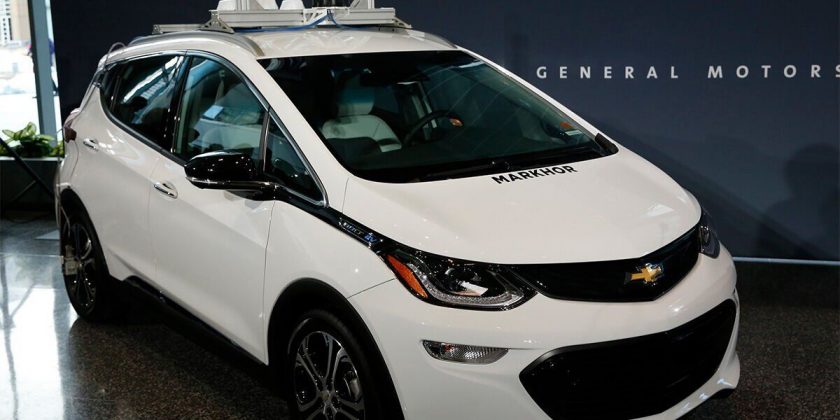Earlier this month, American car giant General Motors filed a patent for a car that can teach people how to drive. The move would allow learners to jump in a vehicle without an instructor and receive training on public roads.
In the filing, the description of the technology indicates that the autonomous vehicle will be constantly interpreting the world around it.
It will also make its own decisions about the correct inputs.
The vehicle will then compare all of the above with what the driver does.
This includes looking at their steering and pedal inputs as well as external factors such as speed and position on the road compared with other vehicles.

We use your sign-up to provide content in ways you’ve consented to and to improve our understanding of you. This may include adverts from us and 3rd parties based on our understanding. You can unsubscribe at any time. More info
An algorithm can then determine a score for each of the factors and feed this back to the driver as well as third parties.
However, Seb Goldin, the CEO of RED Driving School, claimed that autonomous learner cars will not be taking over any time soon.
He said: “I believe the role of driving education is going to be greatly increasing over the next 20, 30, 40 years rather than decreasing.
“If we woke up and we were all driving autonomous vehicles it would be a different world.
DON’T MISS
Belfast named as the best UK airport for parking – Full list [LIST]
Drivers fined £700,000 after being caught out by bus lane cameras [REVEAL]
Drivers risk failing MOT for having rear-view mirror accessories [WARNING]
“You are going to have that period of transition which is going to be even more challenging for drivers than it is at the moment.”
The expert added that driving is a technical skill as well as a behaviour.
Mr Goldin said: “Whilst you could learn a technical skill from a computer, it’s a lot harder to learn a behaviour without having someone alongside you to assist you.
“I suppose the role of a driving instructor is to frame a learning experience in terms appropriate for the learner.
 Book here
Book here
Book your MOT with the UK’s #1 MOT tester – just click the link to book online.
 View Deal
View Deal

“At some point there will be autonomous vehicles and human responsibility and human interaction will be very different.”
The filing of the autonomous vehicle suggests that the car will be able to take over one or more aspects of driving if the learner’s score drops below a certain threshold.
For example, if the car registers that the driver is braking too late, it can help to slow the car or move it back to the centre of the lane if they are drifting across.
It can also start out by giving new drivers control over some simple inputs.

The vehicle can then introduce more difficult aspects of driving as the learner’s competency increases.
The benefits of such a system are said to be a reduced cost for those learning to drive, as well as increased availability of driver education, as the vehicles could be available 24/7.
Lower cost and improved availability and safety are obvious on paper, but it remains to be seen whether regulators buy into the idea of teaching people to drive with autonomous cars.
Learners themselves might also not feel comfortable alone in the car.
Regardless, autonomous cars are not currently legal to drive anywhere in the world outside of very specific testing circumstances, so autonomous learner vehicles will be some way off yet.
Source: Read Full Article
